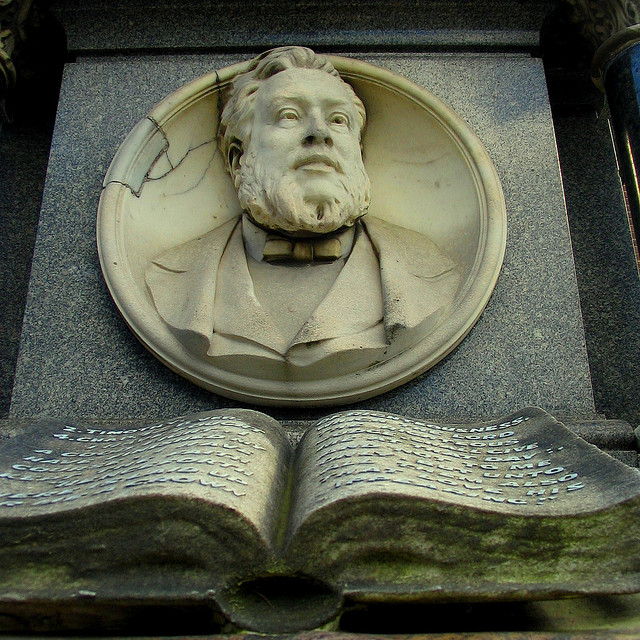Charles Spurgeon and Textual Criticism
Normally when Charles Spurgeon is spoken of he is hailed as the Prince of Preachers. He is especially appreciated with regard to his public preaching skill. Undoubtedly, Spurgeon was a very skilled preacher who loved the Lord and proclaimed Scripture boldly. Much of Spurgeon’s life serves as a tremendous example that Christians (generally) and preachers (specifically) ought to follow.
One often-neglected aspect of Spurgeon’s preaching capability was his attention to the original language as far as ascertaining to the original text. In other words, Spurgeon regularly practiced textual criticism. Spurgeon was very concerned with making sure he was preaching what was truly God’s Word.
Although Spurgeon preferred using the AV (KJV), he was not bound to it. Read to what Spurgeon says:
Do not needlessly amend our authorized version. It is faulty in many places, but still it is a grand work taking it for all in all, and it is unwise to be making every old lady distrust the only Bible she can get at, or what is more likely, mistrust you for falling out with her cherished treasure. Correct where correction must be for truth’s sake, but never for the vainglorious display of your critical ability.
Notice that Spurgeon was adamantly against any attempt to talk about textual criticism for the purpose of self-promotion. However, Spurgeon admitted that the English version that his congregation used (AV) was not perfect, and in cases where there should be a correction noted, he was willing to note the correction, “for truth’s sake.”
Although Spurgeon lacked formal training in the area of textual criticism, he was a critical thinker on such issues. Spurgeon often demonstrated that he was aware of theologically motivated changes that had been introduced into some Greek manuscripts by later copyists. And although his goal was never to impress his congregation with his knowledge, he desired to ensure that they received the truth—a noble goal for any teacher.
Thinking through Spurgeon’s view of textual criticism is a good reminder to preachers and serious students of God’s Word that, (1) preachers should help grow their congregations to be able to think maturely about issues of textual differences, and (2) evaluating different readings is a work that must be done (even if we are imperfect at it, we must do our best). Often times, commentaries are quite helpful in working through different variants.
Spurgeon’s example is a great reminder that textual criticism is not some esoteric discipline. Rather, it ought not to be neglected. What is at stake is God’s Word—and that is worth the extra work to ensure we are reading it properly.
For a more thorough and academic treatment of this issue, see this excellent article by Elijah Hixson.
photo credit: seriykotik1970 via photopin cc

